
In a world that often emphasises the value of social connections, there’s an important distinction to be made between being alone and feeling lonely.
Many people associate solitude with a sense of isolation or sadness, but the truth is that being alone can be a fulfilling and rejuvenating experience. 😊
In this blog post, I will explore the nuances of being alone versus feeling lonely, understanding the importance of solitude, and embracing the positive aspects of both states.
Let’s get to it. 💕
The Difference Between Being Alone and Feeling Lonely:
Being Alone:
Being alone is a state of physical solitude, where you find yourself without the company of others. It can occur by choice or as a natural consequence of circumstances. Spending time alone provides an opportunity for self-reflection, relaxation, and personal growth.
It allows you to engage in activities that bring you joy, pursue hobbies, or simply enjoy a moment of peace. Being alone can be a deliberate choice, a time to recharge and connect with oneself. 🥰
Feeling Lonely:
Loneliness, on the other hand, is an emotional state that arises from a perceived lack of meaningful connections. It’s possible to feel lonely even in a crowded room if the connections are superficial or unfulfilling.
Loneliness is often characterised by a sense of emptiness, isolation, or a longing for deeper human connections. It’s a complex emotional experience that can impact mental and physical well-being. 😟
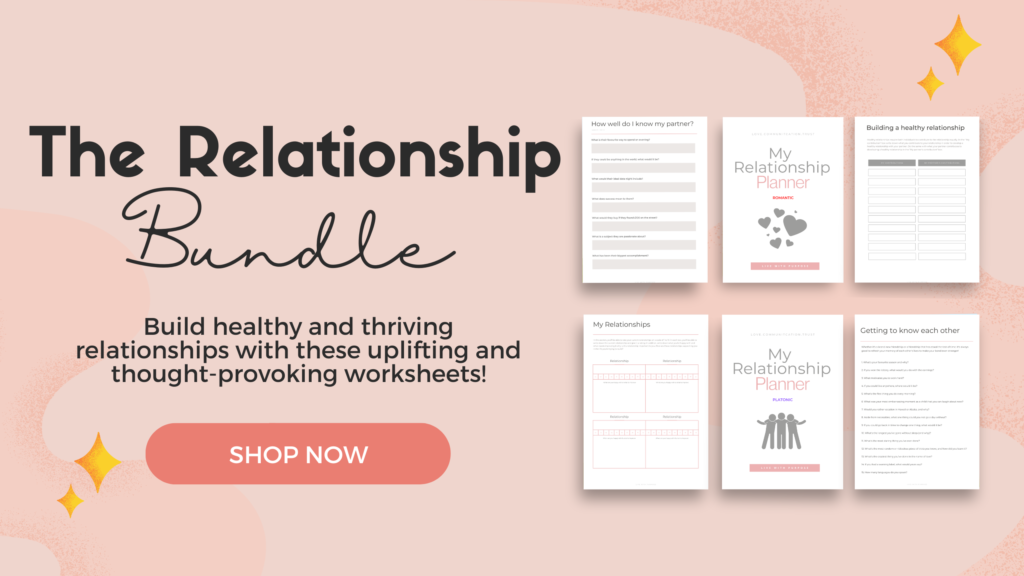
Embracing the Positive Aspects of Being Alone:
1. Self-Discovery:
Being alone provides an opportunity for self-discovery. It allows you to explore your thoughts, feelings, and interests without external influences. Use this time to reflect on your goals, values, and aspirations. Self-discovery is a crucial aspect of personal growth and can lead to a deeper understanding of oneself.
2. Independence:
Embracing solitude fosters independence. When you’re comfortable being alone, you become more self-reliant and less reliant on others for your happiness. This independence can empower you to make decisions based on your own needs and preferences, leading to a more authentic and fulfilling life. 🥰
3. Creativity:
Solitude often sparks creativity. When you’re alone with your thoughts, you have the mental space to generate new ideas, think critically, and engage in creative pursuits (yaay). Many artists, writers, and innovators find inspiration in moments of solitude, leading to the creation of meaningful and impactful work. 🎨
4. Rest and Rejuvenation:
Being alone allows for rest and rejuvenation. In a world filled with constant stimuli, taking time for solitude can be a form of self-care. It provides an opportunity to relax, recharge, and focus on activities that bring you peace and joy, contributing to overall well-being.
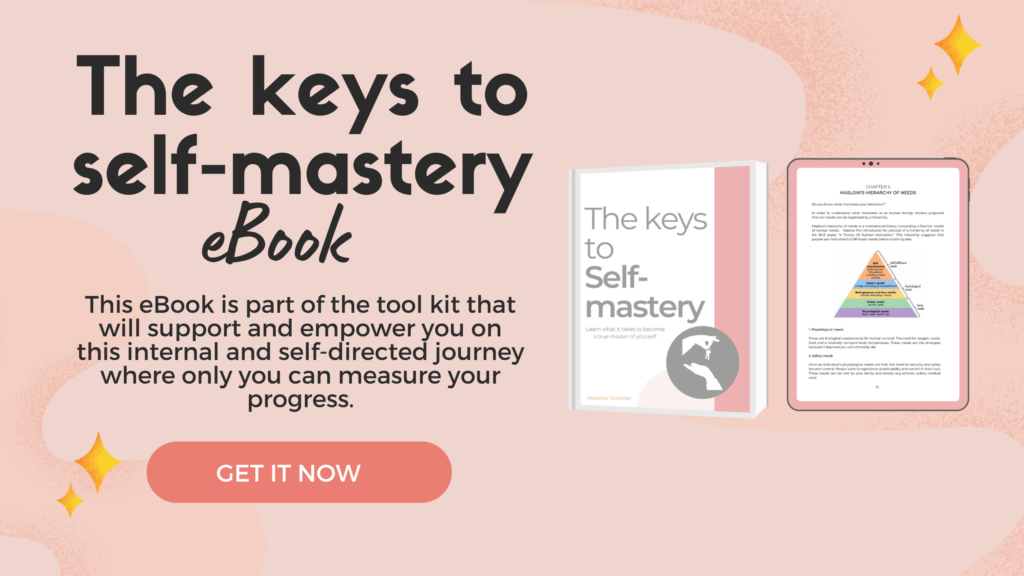
Addressing the Challenges of Feeling Lonely:
1. Cultivating Meaningful Connections:
If loneliness arises from a lack of meaningful connections, focus on cultivating relationships that nourish your soul. Seek out individuals who share your values and interests. Join clubs, organisations, or communities where you can meet like-minded people. Focus on getting yourself out there. Quality connections are often more fulfilling than a large social circle. 🫂
2. Volunteering and Giving Back:
Engaging in volunteer work or contributing to your community can alleviate feelings of loneliness. By helping others, you not only make a positive impact on the world but also connect with individuals who share a common purpose. Volunteering provides a sense of belonging and fulfillment.
3. Seeking Professional Support:
If loneliness becomes a persistent and overwhelming emotion, maybe consider seeking professional support. A therapist or counselor can provide guidance and a safe space to explore the root causes of loneliness. Addressing these issues with professional help can lead to a more fulfilling and connected life. 🫶
Finding Balance:
The key to a fulfilling life lies in finding a balance between being alone and fostering meaningful connections. Embrace solitude as a time for self-discovery, creativity, and rejuvenation. At the same time, actively cultivate relationships that bring joy and fulfillment. Recognise that both states are essential for a well-rounded and satisfying life. 💕
Conclusion
Being alone and feeling lonely are two distinct experiences, each with its own set of opportunities and challenges. Embracing solitude allows for self-discovery, independence, creativity, and rest. However, if loneliness creeps in, it’s crucial to address it by cultivating meaningful connections, volunteering, or seeking professional support. You are not alone. ❤️
Understanding the nuances between being alone and feeling lonely empowers you to navigate both states with intention and purpose. Ultimately, finding a balance between solitude and social connections contributes to a rich and fulfilling life. Embrace the positive aspects of being alone, foster meaningful connections, and savor the journey of self-discovery in this beautiful dance between solitude and companionship.
Pin this post for a reminder 📌 👇

Related Blogs
Things to Say “No” to for you to Live a Happier Life
How to Stop Settling For Less Than You Deserve
How to Become the Best Version of Yourself: A Guide For 20-Somethings
Have you ever felt like you’re just living for the weekend? That it takes all your energy and focus just to get through the week just so you can say “Thank God it’s Friday!”? 🥲
It’s a common problem, but it doesn’t have to be the norm. You can take charge of your life and break free from the weekend mindset. With a few simple changes, you can start living life to the fullest every day.
Let’s take a look at how you can make that happen. 🤗
What does it mean to “live for the weekend?”
Living for the weekend is an attitude that quite a few of us have, even if we don’t realise it. It means that we look forward to the weekend with a sense of relief and happiness, while we trudge through the week in a state of anticipation.
We see the weekend as our reward for a job well done and as a chance to “let loose” and have some much-needed fun. 😊
It’s not a bad thing, per se, but it can be a problem if we find ourselves counting down the hours until the weekend and feeling like we’re just going through the motions during the week.
When we’re living for the weekend, we’re not really living our lives. We’re just going through the motions until the weekend, when we can finally do something enjoyable.
Doesn’t sound that great, does it? 😬

What stops us from living life to the fullest?
There are a few things that can stop us from living life to the fullest. The most common is a lack of motivation, enthusiasm and self-discipline.
When we’re stuck in a rut or feeling overwhelmed, it can be hard to find the energy to do anything other than the bare minimum. 🤷♀️
We can also be held back by our own limiting beliefs. If we’re constantly telling ourselves that we can’t do something, we’re setting ourselves up for failure, because if you don’t believe you can do it then what would make you try in the first place? 🤔
You need to be able to recognise and challenge these negative beliefs, and have faith in yourself.
It can be difficult to live life to the fullest if you don’t know what that means for you. You need to be able to identify your goals and dreams and figure out how to make them a reality.
How to create a daily routine for success
The first step in living life to the fullest is creating a daily routine that sets us up for success. We need to make sure that we’re taking care of our physical and mental health, as well as our work and relationships.
Check out what your 9 core areas of your life are here.
First, we need to prioritize our health, health is wealth as they say. You should make sure that you’re getting enough sleep and exercise, eating healthy meals, and taking time for yourself. This will ensure that we have the energy and mental clarity to tackle our goals. 💪
We should also make sure to set aside time for work and relationships. A daily routine should include time for work, study, and any other important tasks (especially the ones you find enjoyable). It should also include time to connect with friends and family, either in-person or virtually.
Finally, you need to make sure that you’re taking time for yourself. We should make sure to do something that we enjoy every day, whether it’s reading a book, going for a walk, or watching a movie. 🎥
Want to get daily-guided help on building a daily routine for success? Check out our How to Se Goals & Achieve Them mini-course!
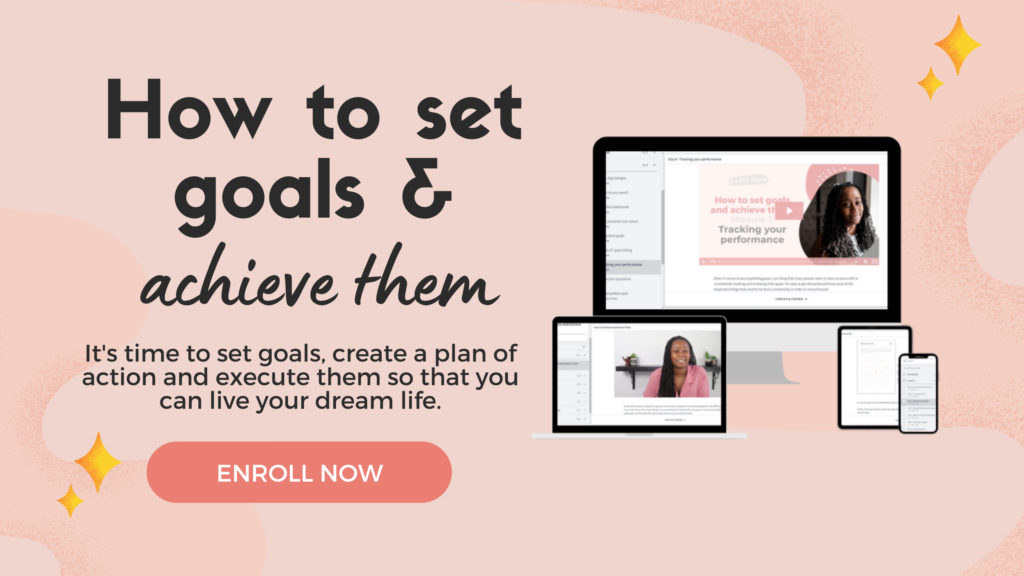
How to let go of stress and distractions
When we’re trying to live life to the fullest, it can be easy to get sidetracked by stress and distractions. We need to be able to recognise when we’re getting overwhelmed and take steps to reduce our stress levels and not just on the weekend!
One way to do this is to practice mindfulness. This means being aware of our thoughts and feelings and accepting them without judgment. It can help us to recognise when we’re getting overwhelmed and take steps to reduce our stress. 😮💨
It’s also vital to set some boundaries. We need to be able to say no to things that don’t serve us, and let go of activities that don’t bring us joy.
This will help to reduce our stress and make room for more meaningful activities. 🤗
Finally, you need to make sure that we’re taking breaks from technology. You should be mindful of how much time you’re spending on our phones and computers, and make sure to take breaks to do something else.
There is a world beyond our phones. 🌍
The benefits of living life to the fullest every day
Living life to the fullest can bring a lot of benefits. It can help us to feel more energised and motivated to tackle anything that life throws at us which in turn can give us a sense of satisfaction and accomplishment. 🏆
It can also help us to make meaningful connections with others. When we’re living life to the fullest, we’re more likely to be open and honest with the people around us, which can lead to stronger relationships.
It can also help us to find a sense of balance. When we’re living life to the fullest, we’re more likely to find a balance between work and play, which can help us to stay focused and productive. 😊

How to find the balance between work and play
Finding balance between work and play can be tricky, but it’s essential to live life to the fullest. 😊
First, we need to make sure that we’re setting realistic expectations for ourselves. You should be realistic about how much work you can get done and set aside time for leisure activities.
We should also make sure to schedule time for both work and play. We need to make sure that we’re taking time to do things that we enjoy and are not working all the time. You’ve only got one life. Are you really trying to spend it working your life away? I think not. 😬
Finally, you need to make sure that you’re taking breaks that are adequate to the amount of work you’re doing. Make sure to take regular breaks from work and leisure activities so that you can stay refreshed and productive.
How to make time for yourself every day
Making time for yourself is essential if you want to live life to the fullest. It can be hard to find the time, but it’s there if you look hard enough and it’s worth it. 🕒
First, you must ensure that you’re setting aside time for yourself every day. This could be as little as 30 minutes. Ideally you should be aiming for at least an hour of alone time with just your thoughts but if you can fit 30 minutes in, it’s better than nothing. 🤷♀️
We should also make sure that we’re doing something that we enjoy. This could be reading a book, taking a walk, or listening to music. The important thing is that we’re taking time to do something that makes us happy.
Finally, you need to make sure that you’re not overscheduling yourself. You should make sure that we’re leaving enough time to rest and recharge and don’t carry any sleep debt onto the next day.

Tips for living life to the fullest every day
Living life to the fullest can be a challenge, but it’s worth it. Here are a few tips to help you get started:
- Start each day with a positive attitude. Make sure to focus on the things that you’re grateful for, and set yourself up for success.
- Make sure to prioritise your health. Take time to exercise and eat healthy meals, and make sure to get enough sleep. 😴
- Make time for yourself. Set aside time every day to do something that you enjoy, and make sure to take regular breaks from work and leisure activities. 🎾
- Set realistic expectations for yourself. Make sure that you’re not overscheduling yourself, and that you’re leaving enough time to rest and recharge.
- Find balance. Make sure to find a balance between work and play, so that you can stay focused and productive.
Strategies for breaking free from the weekend mindset
Breaking free from the weekend mindset can be hard, but there’s always a way. Here are a few strategies to help you get started:
- Make a plan. Set yourself up for success by creating a daily routine, and make sure to prioritize your health, work, and relationships. 👪
- Challenge your limiting beliefs. Recognise and challenge any negative beliefs holding you back, and have faith in yourself.
- Let go of stress and distractions. Practice mindfulness, set boundaries, and take breaks from technology. 💻
- Find your purpose. Identify your goals and dreams, and figure out how to make them a reality.
- Make time for yourself. Set aside time every day to do something that you enjoy, and make sure to take regular breaks from work and leisure activities.

Let’s live life to the fullest! – Conclusion
Living life to the fullest every day is possible, even if you’re stuck in the weekend mindset. With a few simple changes, you can start living life to the fullest and find a sense of balance, satisfaction, and accomplishment. 😄
Take charge of your life and break free from the TGIF mindset. Your life is better than that. With a few simple changes, you can start living life to the fullest every day and become a better version of yourself.
You owe it to yourself. 🤗
Pin this post for a reminder 📌 👇

Related Blogs
10 Encouraging Signs You’re Doing Well in Life
Why Intentional Living is The Best Thing You Can Do For Yourself
How to Practice Emotional Regulation: Tips For Adults on How to Cope
Overworked, fatigued and stressed.
Does this currently sound like you? ☹️
Yes!? well then it’s time to start making your health a priority and create a plan to save yourself from burnout before it completely takes over your personal and professional life.
Patching over the cracks is not a viable solution, it’s time to treat the cause and not the symptom.
Burnouts are a result of a discrepancy between your input and output. For example, sometimes, you may feel that you’re putting a lot of work, heart, and soul into a project but not getting the desired results. The usual answer to this is to work even harder instead of stepping back and figuring out a way to work smarter. 🧠
Some warning signs of burnout that you must watch out for are stressful personal relationships, health issues such as back pain, hypertension, obesity, cognitive difficulties, fatigue, negative feelings and emotions, lost motivation to work, etc.
Research has proven that certain medical conditions like hypertension, coronary artery disease, and sleep disturbances can stem from extreme forms of burnout.
It’s a “No” from me 🙅♀️

Your stress can bleed into every task that you perform and deteriorate your personal relationships. So if you’re wondering how to stop yourself from burning out, we’ve got you covered! Read on to explore the top 10 tips to save yourself from burnout!
1. Disconnect from the World
This is one of the most important tips to save yourself from a much-dreaded burnout and its aftermath. To altogether leave your work behind and give yourself time to rejuvenate, you need to electronically disconnect from the outside world.
It’s all about you. 💆
Give yourself time to heal from the fatigue you’ve experienced all week at work. Make it a habit to designate a specific time of your day to answer emails and other important notifications. This will help you to manage your career better in the long run.
2. Listen to Your Body
You may think that the constant headache you’ve been experiencing is merely a result of dehydration or that the pain in your neck is due to a bad sleeping posture.
But, these constant pains and aches could be your body’s sign of telling you how stressed it is feeling. Burnout can lead to several clinical manifestations due to stress accumulation. Therefore, it is crucial that you listen to your body’s signals and beat the burnout!
Don’t put off taking care of your body or your body will force you to take days off. 🙃

3. Time to Relax
Just like you plan your work schedule, you need to schedule your time to relax as well. To nip the dreadful burnout right in the bud, you need to spare some time from your daily schedule to relax.
Taking out just 30 minutes from your hectic work schedule to read a book, dance, and go for a jog or a walk could do the trick! A good thing about sliding in time to relax in your work schedule is that it gives you something to look forward to!
Want to learn how to prioritise your goals and become a master of routine? Check out the How to set goals and achieve them mini-course!

4. Find Your Support System
Withdrawing from people and going into your own shell might seem like a tempting offer when you’re stressed. However, your closest friends and family members can be your allies in your battle against burnout.
Spending valuable time with friends and family who love and adore you will help alleviate your stress and help you create beautiful memories in life. If you’re unsure about how to deal with the current issues in your life, talking it out with your support system always helps! 👪
Involving your loved ones in finding a solution to your problems can make you feel supported. It can also help you gain more clarity on the ongoing issues in your life and arrive at a solution much more quickly.

5. Find the Source of Your Burnout
You might feel stuck in a never-ending cycle of burnout if you can’t find the source of it. Exploring the factors in your life that contribute to your daily stress is an important strategy for tackling it.
Most people believe that professional and work-related triggers are the prime reasons behind burnout. However, it could also result from:
- A demanding academic schedule.
- Personal relationship problems where you can’t figure out a solution that works for both parties.
- Taking care of a loved one suffering from a severe medical condition.
Overloading yourself with too many expectations creates an environment where burnout can fester. Ultimately, you reach your breaking point after trying to do way too much on your own, and that’s exactly when burnout occurs! 😬
The stress that accompanies a single problem is often manageable for most. However, the stress of dealing with multiple out-of-control problems simultaneously overwhelms us.
6. Take a Look at Your Options
Finding a solution to burnout isn’t as straightforward and easy as it may seem. The road to recovery post a stressful breakdown may not be an easy path. However, looking at the options available can guide you through your recovery.
For example, if you’re dealing with a stressful work environment where a boss keeps pestering you with work and doesn’t recognise your efforts, then finding a new job can be the first step towards improving your mental health. 💼
If you don’t want to leave your current job for financial or any other reasons, you can always talk to the HR department and find a solution.
TAKE OUR QUIZ: What does success mean to you?

7. Set Healthy Boundaries
To manage your stress efficiently and do what’s right for you, you must set healthy boundaries. For example, if you’re constantly getting too many invitations for new projects, you can take the following measures:
- Hit the pause button.
- Take a moment to breathe and comb through all the information you’ve received.
- Ask yourself whether you have the energy and time to give your 100% to this project.
- Ask yourself the value this new project will bring to your life.
Always think about how your “yes” to somebody else’s request is going to affect your life and your workload.
8. Do What Makes You Happy
One of the most vital tips to save yourself from burnout is to do what makes you happy. When you feel drained and overwhelmed with feelings of anger for a job/business you once loved, it’s a good idea to circle back in life and spend some time doing what you love the most. 💕
Take a pen and paper and jot down your favorite hobbies. Then, reconcile with lost best friends or go out for a hearty dinner with friends and family.
Apologise to your loved ones for snapping at them while you were stressed and engage in some calming activities such as yoga.

9. Self-Compassion Can Go a Long Way
Burnout can lead to piling up feelings of failure in your life. You might start believing that you’re incapable of achieving your dreams and will never succeed in life.
This is because you’ve pushed yourself above and beyond what you’re realistically capable of. In times like this, it is essential to remind yourself that it’s okay not to be perfect!
So what if you can’t complete 5 projects at once or can’t top your college exams? Who can do it all, really?
Ultimately, what matters is that you gave your best shot, and you must give yourself a good pat on the back for it because you deserve it. 🙂
10. Take the Help of a Therapist
If you feel that you’re on the verge of a mental breakdown and that the burnout you’re feeling in your daily life is impacting your relationships negatively, then it’s best to talk to a therapist.
With professional guidance to navigate your life in the right direction, you can get over your feelings of depression, hopelessness, and dissatisfaction.
Choosing to address your burnout is the first step toward your journey to recovery. A professional therapist can guide you through the rest of it.
There’s no shame in asking for help.
Final Thoughts – Tips to save yourself from burnout
If you’ve been feeling that your daily job or academics are taking a toll on your mental health, then it’s time for you to take a much-needed break.
The above-mentioned tips to save yourself from burnout can be your knight in shining armour in times of stress! So, keep them handy and remember always to keep your mental health ahead of everything else in life!
Pin this post for a reminder 📌 👇

Related Blogs
Things to say No to for you to live a happier life
Habits – Small decisions you make and actions you perform every day.
We all have habits, both good and bad. Habit-forming starts from a very young age, whether it was taking a nap every day after school or writing in your diary every night.
What’s one thing you have to do before your day can start? Is it drink a cup of coffee or tea? Eat an apple from the fruit bowl on your kitchen counter?
These behaviours form a part of your daily routine through your repetitive actions. The way your life is right now is a sum of your habits Scientists say that habits emerge because our brains are constantly looking for ways to save effort. Your brain isn’t trying to be in overdrive every second of the day, it wants to chillax.
Left to its own devices the brain will and make almost any routine a habit.
Cue | Habit | Reward
The process of habit formation that happens within our brains is a three-step loop. First there is the cue, routine then a reward.
Cue: A trigger that tells your brain to go into automatic mode and start your habit.
Routine: The action of your habit which can be physical, emotional or mental.
Reward: Your brain is going to need that dopamine spike in order for your brain to figure out if this particular loop is worth remembering for the future.
Over time this three-step loop will become more and more automatic.
Let’s take for example a smoker. When a smoker sees a cue – a pack of cigarettes, their brain starts anticipating a hit of nicotine. The sight of cigarettes alone is enough for the brain to crave a nicotine rush. If it doesn’t arrive the craving grows until the smoker unthinkingly reaches for the cigarette packet.
How many day‘s does it take to build a habit?
You have probably heard that it takes 12, 21, 33 or 66 days to create a habit. While having a number assigned to it may be encouraging, it can also be misleading.
Here’s the truth: There’s no real timeline.
If you go into the habit-building process expecting the habit to be automated in 33 days and come day 34 and you’re still putting in a conscious effort to start your “habit” you’re going to feel deflated.
The time it takes to establish a habit varies from person to person and habit to habit. Whether it takes you 40 days or 80 days, the exact timeline doesn’t really matter. What will matter is that you’ve created a new habit that you were able to stick to no matter how long it took.
That’s something to be proud of.

1% improvement/ low bar high bar
Acquiring success does not require constant massive action. It’s easy to overestimate the power of one defining moment and not the value of making small improvements daily. Improving by 1% isn’t particularly noticeable but can be far more significant in the long haul. What starts as a small win accumulates into something greater than you can imagine.
It’s only when you look back years later that you see the value of the implementation of the good daily habits you started. This however can be a difficult concept to appreciate in daily life.
One healthy meal a day is better than not eating healthy at all. 10 minutes of reading is better than never picking up the book. 10 minutes of piano practice is better than none at all. It’s better to do less than you had hoped than nothing at all.
The most powerful outcomes of any compounding process are delayed. You need to be patient in order to see results.
You won’t notice how 10 minutes of reading is slowly expanding your brain and you won’t see the effects of 1 day at the gym. You have to believe that what you’re doing daily will pay off in the end.
Don’t let instant gratification get in the way of your results. Stay the course. Your daily 1% improvements determine the difference between who you are and who you want to be. It doesn’t matter how successful you want to be right now, what matters is whether your habits are putting you on the right path for success.
Do habits just disappear?
Habits never really just disappear into thin air. They still live in the structure of your brain which can be of huge benefit to us. Could you imagine having to re-learn how to ride a bike or drive a car every two weeks? That would be a complete nightmare. However, our brains aren’t able to distinguish between a bad habit and a good habit. So, your bad habits are sitting alongside your good habits just waiting for a cue.
How do habits change?
Habits are created by putting together a cue, a routine, and a reward and then cultivating a craving that drives the three-step loop.
There are no specific steps that are guaranteed to work for everybody, but what we do know is that a habit cannot be eradicated it must instead be replaced. If we keep the same cue and the same reward a new routine can be inserted. Almost any behaviour can be transformed if the cue and reward stay the same. For some habits however, there’s one other ingredient that’s necessary: belief.
Once you’re aware of how your habits work and recognize the cues and rewards, you’re halfway to changing it.
Changing habits is one of the most fundamental skills you can learn, as it allows you to reshape your life and reshape who you are.
Who wouldn’t want this transformational skill?

Why you should start small
You should start small so that your new normal adjusts without you noticing as much.
We all like the feeling of comfortability. When you’re used to a set of conditions, trying to deviate from them with a lot of changes will make you extremely uncomfortable. If you make small changes, you don’t notice it as much. After a while, you start to adapt to these small changes, and they become part of the conditions that you’re used to. This becomes your new normal. Changing your life in small steps rather than big ones sets you up for a better chance of succeeding as you are gradually changing to your new normal without much friction.
They’re easier to start
When you’re trying to make a big change in your life, it requires more brainpower, mental commitment, time and energy. If you’re someone like me who has a to-do list as long as their arm every week, then trying to find the time to add on new healthy habits can be difficult.
For example, if you make a mental note that you want to go to the gym for 2 hours every day you may achieve it for a couple of days (that’s if you remember that is) but it will take an extraordinary amount of effort on your part.
A small change for this example could be to plank 1 minute a day as soon as you wake up. Doing this makes it much easier to get started. You could start doing it right now in the middle of this blog post!
You then gradually build up to your end goal, which won’t be as daunting as you would have already built a habit related to it. Also known as “Micro habits” – A really small action that requires minimal motivation or effort to complete.
Remember: Making a habit easy to begin with will make it more likely to do it.
They’re easier to sustain
Let me give you an example:
If you’re someone who usually wakes up at midday but want to switch up your routine and start waking up at 5:30am straight away you’re going to have a VERY hard time trying to sustain that. You may last 1 or two days but that’s not creating a habit, it’s creating a fad. For you to make a drastic step in your sleep routine you need to gradually wake up earlier and earlier each day. Whether it’s 15 minutes, 20 minutes, or 30 minutes.
This type of practice can work in every situation. Whether you’re trying to go to the gym more often or trying to eat healthier. These small increments will make it much easier to sustain than going from 0-100.
When you attempt to create new habits and change old ones there will be times when you will have failed attempts. Don’t see it as a failure of you as a person but a way to learn more about yourself and what to do differently next time.
There will be a lot of trial and error but you won’t know until you try and see what works for you. The people who succeed at habits aren’t the people who never fail- they are the people who keep going after they fail.
What habit are you currently trying to develop?
Related blogs:
How to improve your life one day at a time
How to create the best daily routine
How to raise your standards and live your best life
Are you currently living your life on autopilot and not getting much done? If so, you need to re-evaluate your daily routine.
A routine is a set of habits we develop as a daily practice. Whether you realise it or not, you already have many routines that you do on a daily basis. Whether it’s getting out of bed at a certain time every day or watching your favourite program in your favourite chair at the same time every day.
However, if you don’t take time to analyse each of your routines (morning, afternoon and evening) to see if they bring you closer to your goals then chances are, you’re not going in the right direction.
Having no routine or structure in your life is so much more draining mentally, physically and emotionally than not having a routine at all. Why waste your time figuring out what to do each day, when you can create a routine tailored to your wants and needs?
Lets explore what a good daily routine consists of and how to create an ideal routine that suits you.
First, as you know a routine means: A routine is a sequence of actions that you do repeatedly.
Brushing your teeth and washing your face with your fancy skincare products is a routine. Waking up at 6:30am and going out for a run is a routine. Purchasing hot chocolate from Starbucks on your journey to work is a routine. These actions happen repeatedly and create a rhythm in your daily life.
Why should you create a routine?
Establishing a productive routine is both a self-investment and a way to do your best for the rest of the world.
“In the right hands a routine can be a finely calibrated mechanism for taking advantage of a range of limited resources: time (the most limited resource of all) as well as willpower, self-discipline, optimism. A solid routine fosters a well-worn groove for ones mental energies and helps stave off the tyranny of moods”
Mason Currey
Managing your day allows you to feel more in control. Who likes having their day dictated by other people? I know I sure don’t. You’ll feel more energised and productive with a routine that you know is progressing you further in life. This in turn will help you be more proactive and in control in the face of a stressful situation.
Your routines prime you for success. They help you achieve more than you would by “winging” your day. All it takes is discipline.
Here is a list of actions you should take to help create the best daily routine
1. Make your bed every morning
If there’s one habit you should adopt in your life it’s making your bed every day. Here is some advice from Navy Seal Admiral William H. McRaven:
“If you make your bed every morning, you will have accomplished your first task of the day. It will give you a small sense of pride, and it will encourage you to do another task and another. By the end of the day that one task completed will have turned into many tasks completed.
Making your bed will also reinforce the fact that the little things in life matter. If you can’t do the little things right, you’ll never be able to do the big things right. If by any chance you have a miserable day, you will come home to a bed that is made – that you made. A made bed gives you encouragement that tomorrow will be a better day. “
As Charles Duhigg said in “The Power of habit” – Certain keystone habits can trigger other positive behaviours. If you can change a step in your unhealthy habits you can gear your life to building healthier patterns.
Making your bed doesn’t necessarily mean you’ll have better productivity, but it can lead to a healthier overall mindset.

2. Reflect on your achievements
It’s easy to lose sight of achievements made after a long day. Taking a few moments before you jump into bed to reflect and celebrate your wins big or small puts you in a grateful and happy mindset before you go to sleep. Reflecting on these achievements puts things into perspective and gives you the encouragement to carry on the same flow for the next day.
Reflecting also gives you a better understanding of what’s working and what’s not. This then allows you to make better decisions and change habits that are not beneficial for you. Each time you improve, it helps build your confidence with increased knowledge and perspective.
You can reflect in a number of ways such as jotting it down in a notebook, writing in your gratitude journal and you can also track your productivity with a number of apps such as: “Productive – Habit Tracker, “ Forest” and “ Wunderlist”.
3. Recite affirmations
Affirmations are positive statements that you use to reframe how you think about yourself and the outcome of the future. They are a good way of visualising the good things that will come to you and overcoming negative self-talk.
Affirmations make an impression on your subconscious mind, allowing you to be in alignment with what you want to accomplish. This makes it easier to be in the right mindset before you start your day and when you’re ready to go to bed.
The way you choose to think, day in and day out is just that – a choice. Choose daily positive thinking and watch how differently you see your life.
4. Have a proper breakfast
Breakfast provides the body and brain with fuel after an overnight fast – which is where its name originates from, breaking the fast! Starting the day running on empty is equivalent to trying to drive a car with no petrol.
I HAVE to have breakfast in order for me to have a productive day. Nothing worse than trying to get some work done and your stomach is just grumbling away!
Eating a good breakfast is amazing for your health, as research shows that those who eat breakfast are less likely to be overweight and more likely to be in their ideal weight range compared to people who skip breakfast. If you skip breakfast, you’re more likely to reach for high sugar and fatty snacks mid-morning to get your energy boost.
Probably the most appealing benefit Is that breakfast jumpstarts your metabolism and thus helps you burn more calories during the day. When you eat breakfast, you’re telling your body that more calories are coming throughout the day. When you skip breakfast the message your body gets is that it needs to conserve rather than burn any incoming calories.
5. Clean your home
When you start your day, the last thing you want to see is mess all around you. Without regular clean-up sessions you’ll find your environment in disarray.
Spending 10-20 minutes each day tidying up reduces the stress of having regular deep cleaning days. While it sometimes seems impossible to manage everything on your plate, there are some quick and easy tips to help you get your house in order.
1. Put everything away after use
2. Focus on one room at a time
3. Do the dishes after every meal
4. Set a timer so you don’t procrastinate
5. Do a load of laundry daily
6. Give everything it’s own space to live
7. Make your bed as soon as you wake up
8. Keep basic cleaning supplies close to where you use them
6. Exercise
Even though exercise can happen at any time of the day, many experts suggest that the morning is the best time to take part in physical activities. Exercising in the morning is a great way for helping the body jump-start your metabolism and burned stored fat.
A general recommendation is to exercise 30 minutes each day, this amounts to only 2% of your day! Exercising is a no-brainer when it comes to what you should incorporate into your daily routine. Is it going to be easy? Nope. Is it going to be worth it, absolutely!
Start thinking today about how you’re going to incorporate exercise into your daily routine. If you already do, think about how you can start mixing it up. Keeping things fresh keeps your mind engaged, making you less likely to give up.

7. Read
Becoming an avid reader was one of the best things I’ve done for my creativity and mental wellbeing. The first book I ever read for my personal growth was The Power of Habit by Charles Duhigg. It was this book that started my daily reading habit and would urge anyone who wants to learn more about habits to read that book!
A daily dose of reading can do wonders for your relationships, health and memory.
Want your vocabulary to improve? Read
Want to develop your self-discipline? Read
Want to boost your IQ? Read
Pick up a book today and spend a minimum of 15 minutes reading. Get yourself in a nice comfy area with a hot cup of tea and let your imagination loose.
8. Spend time with family/friends
One of the best ways to combat stress is to spend time with your loved ones. The smiles, the belly-aching laughter, the sincere joy that you feel when they’re around is what you should aim to feel daily.
Who are you thinking about right now as you’re reading this? Give them a call or text to meet up later or during the week and have a good laugh. You deserve to enrich your life with positive and encouraging people around you.
Don’t underestimate the power of having a solid support system around you. It makes going after your goals even easier and allows you to celebrate your wins both big and small with the ones that matter most.
In Summary
Following a daily routine can help you establish priories, keep track of goals, limit procrastination and make you healthier. It helps lower your reliance on self-discipline and motivation due to the repeated action causing the right habits to be formed.
Since creating and following a routine of my own, I have more drive and motivation which makes reaching my goals a lot easier. I show up every day with more mental and physical energy which get me through my tough days.
Remember: What works for someone else, might not work for you. This is why it’s vital to pick activities that resonate the most with you and put you on the path to task and goal completion. The key is to create regular and consistent daily patterns that will take you to where you want to go in life, helping you maximise yourself on every possible level.
There is a whole module in the How to set goals and achieve them mini-course dedicated to creating your ideal 24 hours! Learn how to create a morning, afternoon and evening routine that gets you closer to completing your life-changing goals. Don’t wait any longer to get what you want out of life. You are deserving of that dream life. Let me help you get started > How to set goals and achieve them mini-course
Related blogs:
How to improve your life one day at a time
How different do you think your life would be if you were able to move the needle on your dreams every single day? 🤔
It’s tempting to believe that focusing on one big goal that’s going to make us happy is the answer but in reality, it forces us into inaction. It’s knowing how to improve your life one day at a time that’s going to have a huge impact on us.
Think about it, how often do you get overwhelmed when you think about all the things that you have to do?
You get annoyed and are riddled with anxiety because you think “ How on Earth am I going to get all of this done”. When really you should be asking yourself “ What first step do I need to take in order to get to my end goal?” – The better quality questions you ask yourself, the more quality answers you will receive. 😌
“If you start out with £100 at the beginning of the year and you were able to increase what you have by 1% every single day, at the end of that year, you would have £3,778.34 = £100 * (1+1%)^ 365. That is 37.78x what you had at the beginning of the year. Get that 1% every day”Zappos
Focus on that 1% each day. Read those 5 pages, do that extra rep, drink that extra litre of water. It may not seem like much at the moment but these small moments accumulate over time.

*This posts contains affiliate links, meaning I make commission through qualifying purchases at no extra cost to you. Please read my disclaimer for more info*
“Habits are the compound interest of self-improvement” – James Clear. Just as money multiplies through compound interest, the effects of your habits multiply as you repeat them.
Impatience often calls for small changes to be dismissed because they don’t seem to matter as much in the moment of doing them.
Making changes and not seeing results fast enough can cause us to slip back into bad habits. Instant gratification is a killer. I think patience is one of the most underrated skills out there. If a lot more people were patient there would be a lot more successful people out there. 🤷♀️
Remember: If you practice yoga for 10 minutes every day that doesn’t mean you’re flexible. If you save £30 a month that doesn’t mean you’re a millionaire.
However, the accumulation of habits you implement will put you in better standing of becoming the type of person you are aiming to be. Here are a few ideas to implement daily into your routine that covers a few of the core areas of your life.
(Health, Family, Finances, Career/ Business, Recreation, Relationships, and personal growth)
1. Give yourself a reward
Too often people get hung up on the idea that self-care has to be a huge deal that involves weeks of planning or some sort of special occasion.
You don’t need to complete a huge milestone in your life in order to reward yourself. It’s much healthier mentally and physically to give yourself time off. Indulge once in a while, go to spas/retreats and holidays. 🏖️
You deserve a break, don’t glorify “The grind don’t stop” life where you’re working all the hours God sends and you have no clue when the last time you ate was.
Consider rewarding yourself as an emotional equivalent to hitting that refresh button. Try not to hit it only when you desperately need it, get into the habit of pressing it every day and give yourself something to look forward to. 😍
The more you acknowledge and reward yourself for all your successes (yes even the small ones), the more success you’ll have.
When you take the time to acknowledge the little actions you took toward your goals you are strengthening those actions. In doing so, positive emotions become associated with those actions making them more likely to turn into daily habits.

2. Start an exercise program
Want to feel healthier, have more energy and add years to your life? Then exercise.
The benefits of exercising are hard to ignore. Everyone benefits from exercise regardless of age, sex or physical ability.
An exercise program that is tailored to you specifically to your needs is a great way to stay physically and mentally fit.
The Department Of Health and Human Services recommends getting at least 150 minutes of moderate aerobic activity or 75 minutes of vigorous aerobic activity a week or a combination of the two.
Do you want to lose weight, build muscle or gain flexibility? Set clear S.M.A.R.T goals so you can gauge your progress.
RELATED: Ready to make your health a priority? Check out our Health Bundle
Make exercise a daily habit by giving it a cue, routine and reward.
Cue: What is the cue for you to start exercising?
Is it passing the gym on the way to work every morning? Is it boredom?
To figure out your cue to exercise write down these five questions the moment the urge hits.
Where am I? (e.g. at home)
What time is it? (e.g. 9:15 am)
What’s my emotional state? (e.g. bored)
Who else is around? (e.g.no one)
What action proceeded the urge? (e.g. wanting to eat the pizza in the fridge)
Write these questions out every day for 7 days, it will then be pretty clear what your cue is to exercise. The next step will be to make that cue more “attractive”. E.g. if your cue is walking past the gym equipment in the living room, put some gym equipment in more rooms that you frequent in. This will increase your chances of working out.
Routine: What is the outcome of the cue?
In this case, our subject matter is exercise. However what type of exercise will come from this cue? E.g. placing a yoga mat in your room will cause you to do yoga in this particular place.
Reward: What is your reward for after you exercise?
Rewards are powerful because they satisfy the craving. Is it your favourite smoothie after each workout? Then think about that smoothie and how you feel when you drink it and how satisfied you feel after. Eventually, that craving will it easier to push through your routine.
Check out our Health Bundle here 👉 HEALTH BUNDLE
3. Watch a TED talk/ Listen to a podcast
TED talks are short, inspiring and entertaining lectures from some of the world’s most inspiring thought leaders. Watching TED talks and listening to informative podcasts help broaden your perspective, thinking and attitude. When you watch people sharing their ideas on what worked and didn’t work for them you can instantly connect yourself with the life of the speaker.
TED talks/podcasts are easily accessible on any device and free. Meaning there are literally thousands of hours of inspiring content waiting to flow through your ears.
Next time you’re feeling deflated or stuck in life pop out your headphones and try out a podcast or TED talk.
Here are a few of my favourite TED talks for when I have a motivation drop:
https://www.youtube.com/watch?v=MmfikLimeQ8
https://www.youtube.com/watch?v=7sxpKhIbr0E
https://www.youtube.com/watch?v=7sxpKhIbr0E

4. Pick out a new healthy recipe
Hands up! Who has an issue with eating healthy at least 90% of the time? I know I do. Healthy eating matters even though staying on top of it can be difficult, especially with the convenience of junk food around every corner and the availability of it on apps.
When we eat well we sleep better, have more energy and better concentration. Overall, you will live a healthier and happier life. Contrary to popular belief, healthy eating isn’t about cutting out food – it’s about eating a wide variety of food in the right amounts to give your body what it needs.
Picking out a new healthy recipe that you want to try daily will put you in better standing of becoming a healthier person since you have already planned what you’re going to eat and when. This helps eliminate convenient junk food eating.
5. Have family time
Family is forever. However, it’s important to remember to keep the relationship with your family healthy. We often think that it’s about the quantity of time that we spend with our family when in reality its more about the quality of time we should be focusing on.
Having family time is important because you develop ties and bonds with your family members. Everyone wants a sense of belonging and security and by spending quality time together ensures that a deep, strong, family bond develops.
Here’s a list of activities to do with your family whether you have children or not:
✔️ Cook/ bake together
✔️ Confront family member’s fear together as a family ( whether it’s getting a spider out of the house or a fear of clowns, do it together)
✔️ Build a fort in the living room
✔️ Play a board game ( Try not to flip the board over if it’s Monopoly)
✔️ Do a science experiment
✔️ Have a movie night with homemade pizza
✔️ Go outside and have a water balloon fight
✔️ Make a collage of all your dreams and goals
Learn how to improve your life one day at a time by checking out our printables that focus on improving the 8 core areas of your life.
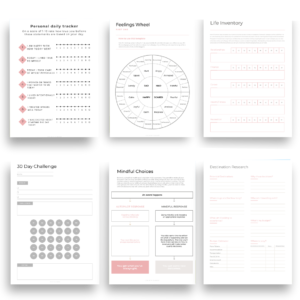
In summary
Don’t wait to be happy. Life is happening right now and there’s so much for you to be grateful for in this very moment. Your life is not just about one big goal that you need to accomplish in order to be happy and feel fulfilled.
Doing any of these points daily will lead to an increase in either a healthy body, healthy mind or healthy relationships which contribute to the core areas of your life. If you manage to do all 5 then good on you! I would love to know how well this impacted your life in a few months’ time.
Which Idea are you going to take action on today?
Pin this post for a reminder! 📌 👇
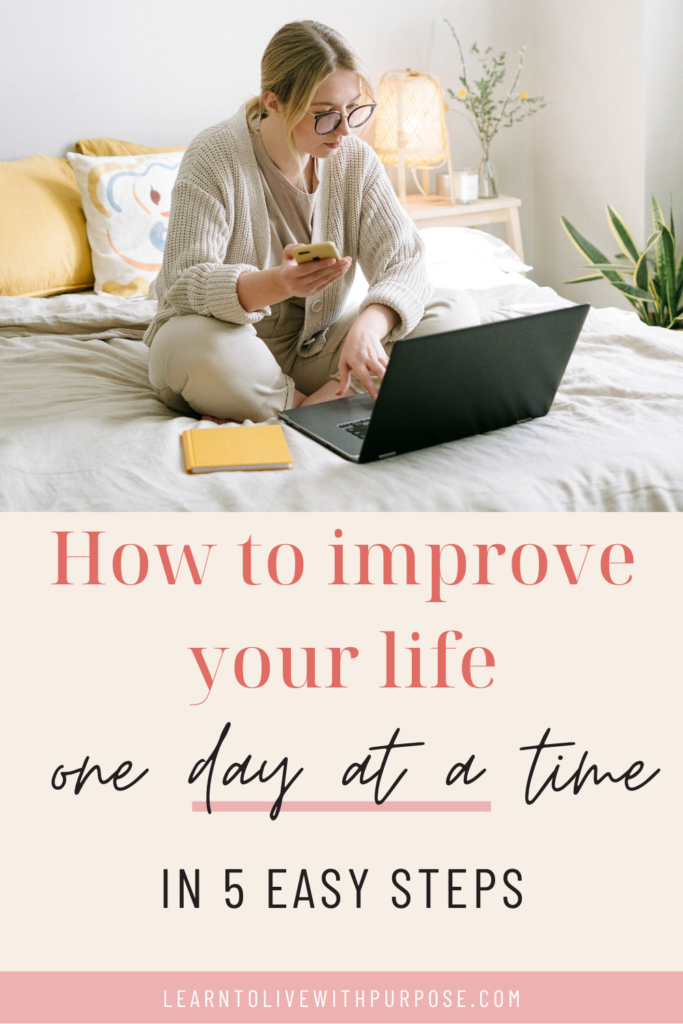
Related blogs
How to raise your standards and live your best life
Did you know that people on my email list sometimes get exclusive discounts on my products? Join the community and save yourself some coins!
Freshly-squeezed inspiration, and no-nonsense tips + tricks to improve your life delivered to your inbox weekly.
Subscribe to my newsletter
Subscribe
You're all signed up!
Be sure to whitelist our email address so that all the goodies make it to your inbox.




